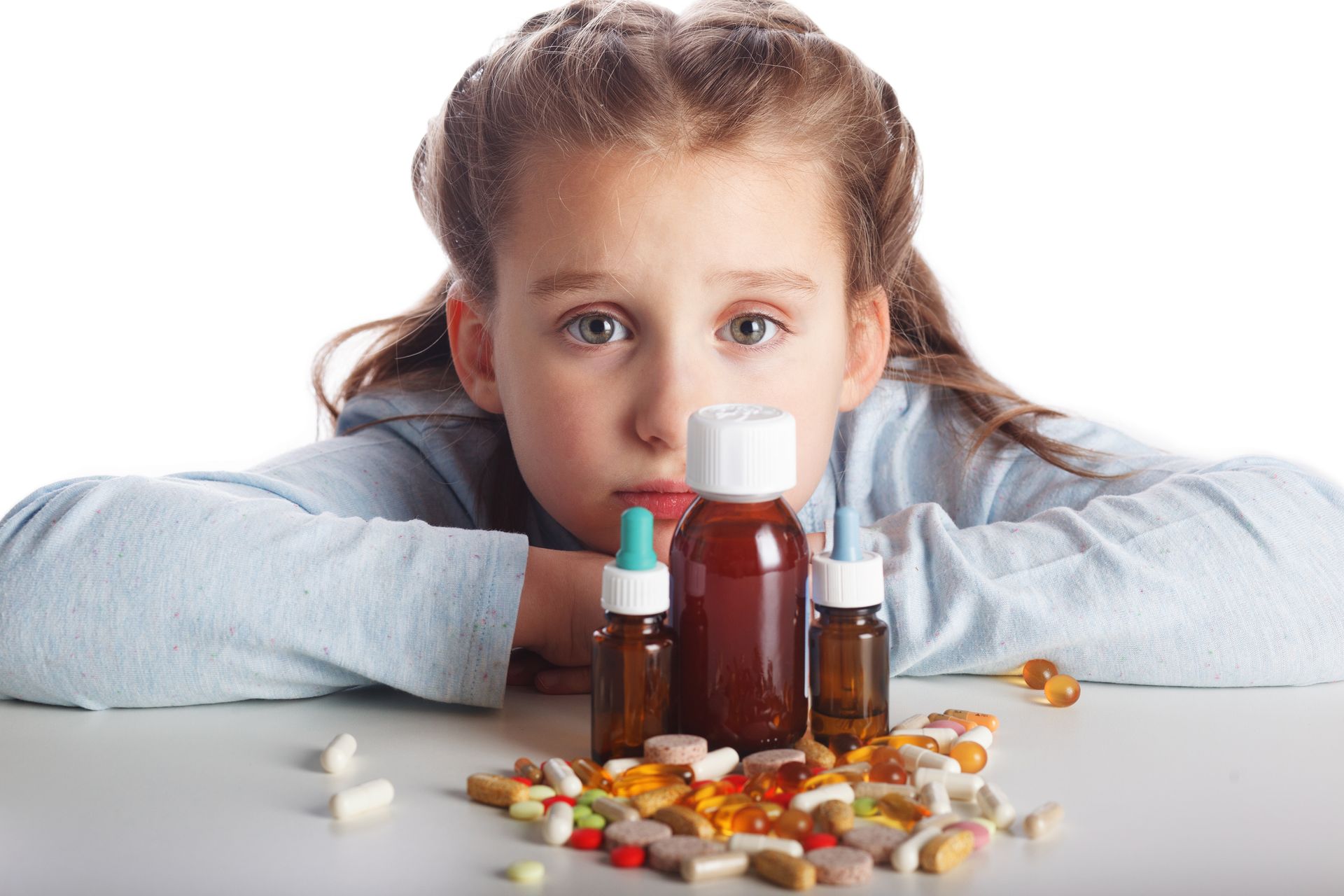How to Safely Manage Kids’ Allergy and Cold Medications

Every parent knows how tough it can be to watch a child struggle with allergies or the common cold. Runny noses, itchy eyes, coughs and congestion often lead to sleepless nights for both kids and parents. While medications can bring relief, they also come with risks if not managed carefully. From incorrect dosages to mixing the wrong products, mistakes are easy to make.
The good news is that with a little preparation and knowledge, you can confidently manage your child’s allergy and cold medications.
Understand the Condition
The first step is to understand whether your child’s symptoms stem from allergies or a cold, since treatment options differ.
- Allergies are triggered by environmental factors like pollen, dust or pet dander. Symptoms may include itchy or watery eyes, sneezing and congestion, but allergies usually don’t cause fever.
- Colds are viral infections. Along with sneezing and congestion, they may cause sore throat, coughing, fatigue or low-grade fever.
If you’re not sure which your child has, ask your pediatrician before starting or combining medications.
Always Read Medication Labels
Many parents make the mistake of grabbing what’s in the cabinet without reading the details. Labels are your best friend when it comes to safety.
- Check the active ingredients to avoid doubling up. For example, acetaminophen (Tylenol) appears in many children’s cold and flu products. Giving more than one medication with acetaminophen can cause accidental overdose.
- Look for the age or weight recommendations on children’s formulas. Adult medications should never be given to kids unless specifically directed by a doctor.
- Pay attention to the warnings section, which notes possible side effects or conditions that make the medicine unsafe.
Dose by Weight, Not Guesswork
Children’s bodies process medicine differently from adults, so dosing is not just a matter of giving “less.” Always use the dosing chart provided on the package, which typically bases safe amounts on weight and age.
- Use the measuring device provided with the medication, never a kitchen spoon.
- If your child’s weight falls between two recommended amounts, consult your pharmacist or pediatrician before giving the dose.
- Write down what you gave, how much and when, especially if more than one caregiver is involved. A simple log can prevent accidental double-dosing.
Avoid Mixing Medications Without Professional Guidance
It’s tempting to try and treat every symptom at once, but mixing medications can create problems. For instance:
- Combining multiple antihistamines can lead to excessive drowsiness or hyperactivity.
- Pairing decongestants with certain cough medicines may affect heart rate or blood pressure.
When in doubt, ask your pharmacist which combinations are safe. Sometimes, the best approach is to treat only the most uncomfortable symptom rather than giving multiple medicines at once.
Watch for Side Effects
Children can react differently to the same medications. Some may become drowsy, while others get restless or irritable. Keep an eye out for:
- Stomach upset
- Difficulty sleeping
- Unusual behavior changes
- Allergic reactions like rashes or swelling
If you notice concerning side effects, stop the medication and contact your healthcare provider right away.
Practice Safe Storage
Young children are naturally curious, and colorful liquids or sweet-tasting syrups may look like candy. Store all medications out of reach and preferably locked away.
- Keep medicines in their original containers.
- Check expiration dates regularly and safely discard outdated products.
- Teach older children that medicine is not candy, even if it tastes sweet.
Know When to See a Doctor
While most colds resolve on their own, there are times when medical attention is necessary:
- If your child is under 6 months old and shows cold symptoms
- If symptoms last more than 10 days without improvement
- If your child has trouble breathing or is wheezing
- If a fever is unusually high or persistent
- If allergy symptoms don’t improve with over-the-counter treatments
Your pediatrician may recommend prescription medication, allergy testing or other treatment options.
Create a Medication Log
Keeping a written log of what you’ve administered to your child and when is one of the simplest ways to stay organized. A chart with columns for medication name, dosage and time ensures no one forgets or accidentally repeats a dose. This is especially important during sleepless nights or when multiple adults are helping care for the child.
Talk to Our Houston Pharmacists About Child-Safe Allergy and Cold Medicines
At St. Hope Pharmacy, we know how stressful it can be when your child is under the weather. Our pharmacy team is here to help you choose the right products, explain safe dosing and answer your questions about potential side effects or drug interactions.
Contact us at St. Hope Pharmacy today in Bellaire, Conroe, Houston, Sugar Land and Dickinson for expert guidance on children’s medications.


